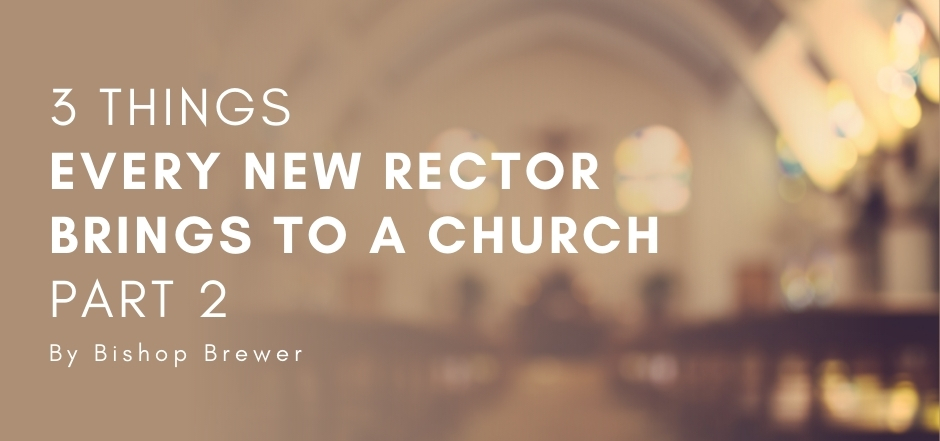3 Things Every New Rector Brings to a Church – Part 2
In part 1, we examined how God uses a new rector to bring a new beginning to a church, and that the new beginning must start with a common vision. We examined that “common vision” and concluded that it must contain a view of the centrality of the death, burial and resurrection of Jesus Christ.
You see, we believe as Christians that the centrality of who Jesus is lies in his death and resurrection. There is no other event that is more important than that, because that is what, in fact, opens the door for eternal life. That was Jesus’ mission: to be, as the scripture later says, “the firstborn of many brothers and sisters” (see Rom. 8:29b). Christ came to receive us as a new family based on forgiveness and mercy on the promise of eternal life, not just a good teacher who exemplified something of the love of God.
But the centrality of Jesus’ life is what we see in the death and resurrection. And there are plenty of people who want to peddle to you and me a version of Jesus that does not put his sacrificial death and resurrection front and center. But that is in fact, what makes him—and expresses in the strongest terms—who he is, as God and flesh, the Son of God who came to save sinners.
Common Love
It’s more than aspirational teaching. It is more than an exemplary life. It is a message of love that challenges us because it brings us up short. All of our pretensions to be something other than someone who is in deep need of redemption and forgiveness are cast aside, and we are called to bend the knee, to say, “Oh, Lord, you are the one that I need above all else. Because you are the one who sees more than anything all the great darkness in life that exists in my heart.” And sharing that message is our common mission.
You see, a common vision is a common understanding of the life and ministry that make Jesus who he is. That invites us into a common love. This love comes because we understand that we are debtors; we are heirs; we are people who could not make it without the mercy and grace of Jesus. And what that arises and creates in us is a passion, a love for Him, that can never be accomplished if all we think about is that the role of the Christian life is to somehow try to be good.
It’s much deeper than that. It has to do with a change of heart. It has to do with the forgiveness and mercy of God, of which I am so profoundly in need. So there is in fact, a message of harbor, victory and eternal life that literally changes me, opens the doors of my heart to a new love that I never expected before. And out of that creates a common love.
“Cleanse the thoughts of our hearts by the inspiration of your Holy Spirit.” What? And be made perfectly—more loving, and worthy of magnifying your holy name.
In other words, what we are saying in that collect that we say pretty much every Sunday when there’s Communion is that what binds us together, what unites us, what we have in common, is that wonderful sense of we are debtors to Christ and that we love him. We love him!
Common Mission
And it is out of that love that we are invited to a new kind of mission, a mission where, as men and women who are literally being changed by God, to live our life together that expresses and invites others into that very same love.
That’s my hope for every church who welcomes a new rector. You will have things to teach the rector, and the rector will have things to teach you about what it means, in fact, to love God, to love one another. And out of that, you will begin to find a new way to express that kind of loving care to your community.
It’s my hope, truly, that there be that much passion and that great joy for each individual, of knowing they have been welcomed and included into a family that loves, forgives and calls them to be their best in the kingdom of God.
How has the Holy Spirit given your church a common love and a common mission? Share this blog and your response on Twitter. Please include my username, @revgregbrewer.
(This post is an adaption of Bishop Brewer’s sermon for Aug. 30, 2020, at St. David’s-by-the-Sea, Cocoa Beach.)
Unless otherwise noted, Scripture quotations are from the New Revised Standard Version Bible, copyright © 1989 the Division of Christian Education of the National Council of the Churches of Christ in the United States of America. Used by permission. All rights reserved.

